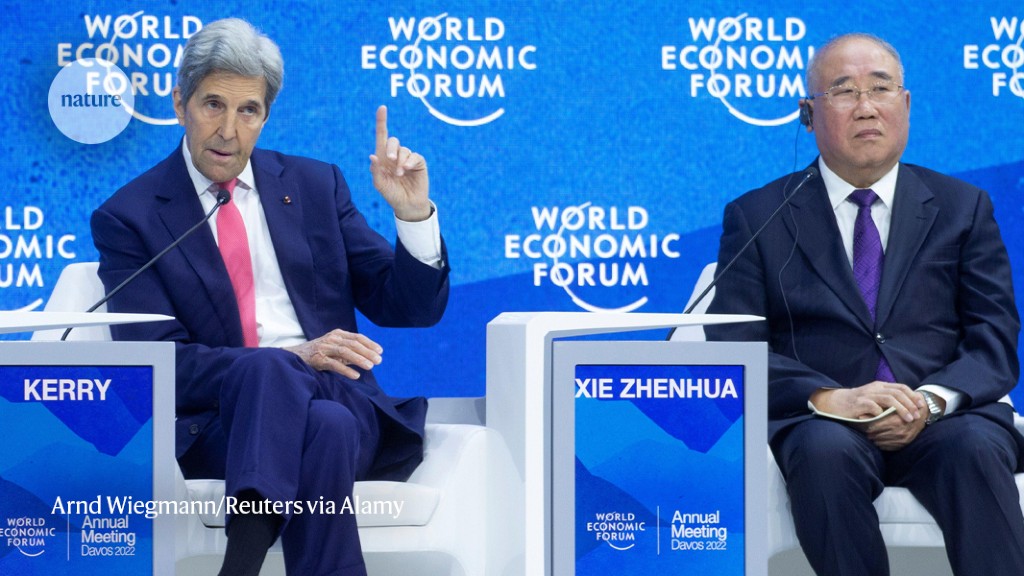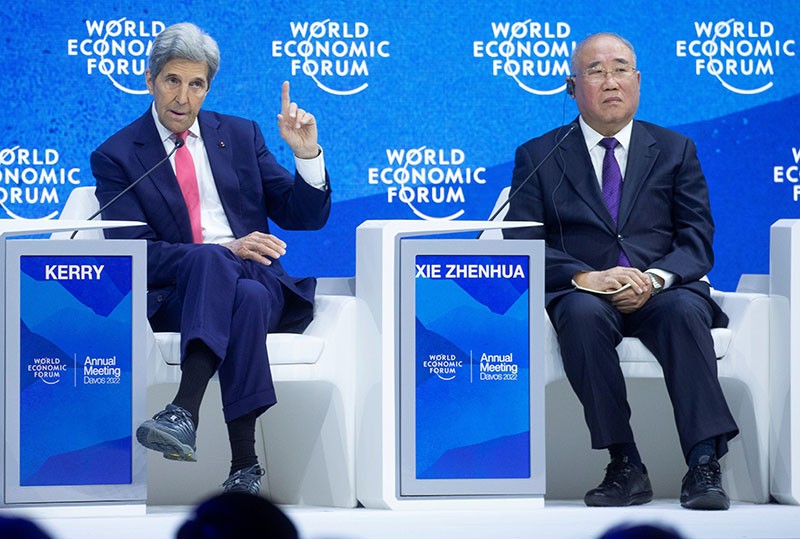Cooperation between the United States and China on global warming has been dealt a major blow after China’s foreign ministry suspended climate talks with the United States. The decision came in response to last week’s high-profile trip to Taiwan by Nancy Pelosi, US speaker of the US House of Representatives, which China says violated its sovereignty. Researchers say a temporary freeze in discussions will probably affect only high-level political engagements, but that a longer stand-off could have a chilling effect on academic collaborations.
“Climate discussions have always been somewhat immune from the turbulent bilateral politics between the US and China,” says Li Shuo, a policy adviser at Greenpeace China in Beijing. “But the announcement last Friday brought this relationship to a very new place.”
Talks between the world’s two largest emitters of greenhouse gases are important for advancing global action on climate change, say researchers. Both countries have demonstrated their commitment to addressing the problem within their borders: over the weekend, the US Senate passed a massive spending bill to invest in clean-energy technologies, and China has promised to become carbon neutral before 2060. But cooperation between the two countries could accelerate action this decade, especially in areas such as the cutting of methane emissions.
A protracted rift between the two could also threaten the success of discussions at the next round of global climate talks in Sharm el-Sheikh, Egypt, in November. Meetings between the United States and China have been crucial in facilitating multilateral consensus at previous summits, says Fei Teng, a climate-policy researcher at Tsinghua University in Beijing. “I hope that China and the US can resolve this conflict soon and go back to the regular routine.”
If the freeze in communications continues until then, Li Shuo anticipates a more politically divisive climate summit in Egypt. But others think that such multilateral engagements will probably continue.
Joint agreement
Discussions on climate change between the two countries ramped up when US President Joe Biden took office in January 2021, after being on the back-burner for several years.
In April, climate envoy John Kerry became the first senior member of Biden’s administration to visit China, meeting Xie Zhenhua, China’s representative on climate change. A second trip followed in September, and at the climate summit in Glasgow, UK, in November, the two countries signed a joint declaration to enhance climate action in the 2020s, including setting standards for emissions reduction, deploying carbon-capture and -storage technologies, and measuring and controlling methane emissions. Kerry and Xie met again at the World Economic Forum in Davos in May. Researchers say China’s suspension is currently restricted to talks between Kerry’s and Xie’s teams.
Some researchers don’t expect the heightened tension to affect climate action. The global nature of the problem means that even if the two countries are not talking, “it is not going to destroy the entire global climate change agenda”, says Sha Yu, an energy researcher at the University of Maryland in College Park. And both countries have been taking steps to fulfil their global commitments. Earlier this month, China published a plan for high-carbon-emitting industries such as steel and cement to hit peak carbon emissions by 2030.
But in their Glasgow joint declaration, both countries recognized that cooperation was necessary to accelerate climate action, notes Barbara Finamore, who studies environmental policy and law with a focus on China at the Oxford Institute for Energy Studies in the United Kingdom, and who is based in Londonberry, New Hampshire. If domestic action were sufficient, “the two countries would not have seen the need to work together on the areas they are having trouble with”, she says.
And Russia’s invasion of Ukraine in February has already pushed climate down the global agenda, says Yan Qin, an economist and carbon analyst based in Oslo at Refinitiv, a company that provides data on financial markets. At the same time, the conflict has also aided climate action, because it has brought energy security to the forefront, driving many countries, including China and the United States, to speed up their transition away from fossil fuels, Qin adds.
Chilling effect
Researchers say that diplomatic tensions have so far not affected academic interactions. Teng thinks it is likely that talks with researchers who work closely with the Chinese and US governments to inform high-level policy decisions, such as on methane, will continue. But he notes that collaborations had only just begun to grow under Biden’s administration.
There are also no signs that other interactions driven by the scientific community will be halted. Fan Dai, director of the California-China Climate Institute at the University of California, Berkeley, which supports joint climate policy research in California and China, says the institute’s work, including on methane-reduction projects involving the state of California and China’s Ministry of Ecology and Environment, will continue.
But some researchers say that if the deadlock drags on, academic collaborations will be affected, and scientists will be reluctant to form new partnerships. The Glasgow agreement was a political signal that such collaborations are acceptable, says Finamore.
Now “Chinese research institutions and their leaders will wonder whether or not they are inviting trouble by continuing on, unless they get a very clear message that business-as-usual is accepted”, says Julio Friedman, chief scientist at Carbon Direct, a company in New York City that offers carbon investment services. Friedman is based in the San Francisco Bay Area, California.
Many researchers, including Sha, are still waiting to work out the implications for their ongoing collaborations. “It is too early to tell,” she says.







More News
Judge dismisses superconductivity physicist’s lawsuit against university
Future of Humanity Institute shuts: what’s next for ‘deep future’ research?
Star Formation Shut Down by Multiphase Gas Outflow in a Galaxy at a Redshift of 2.45 – Nature